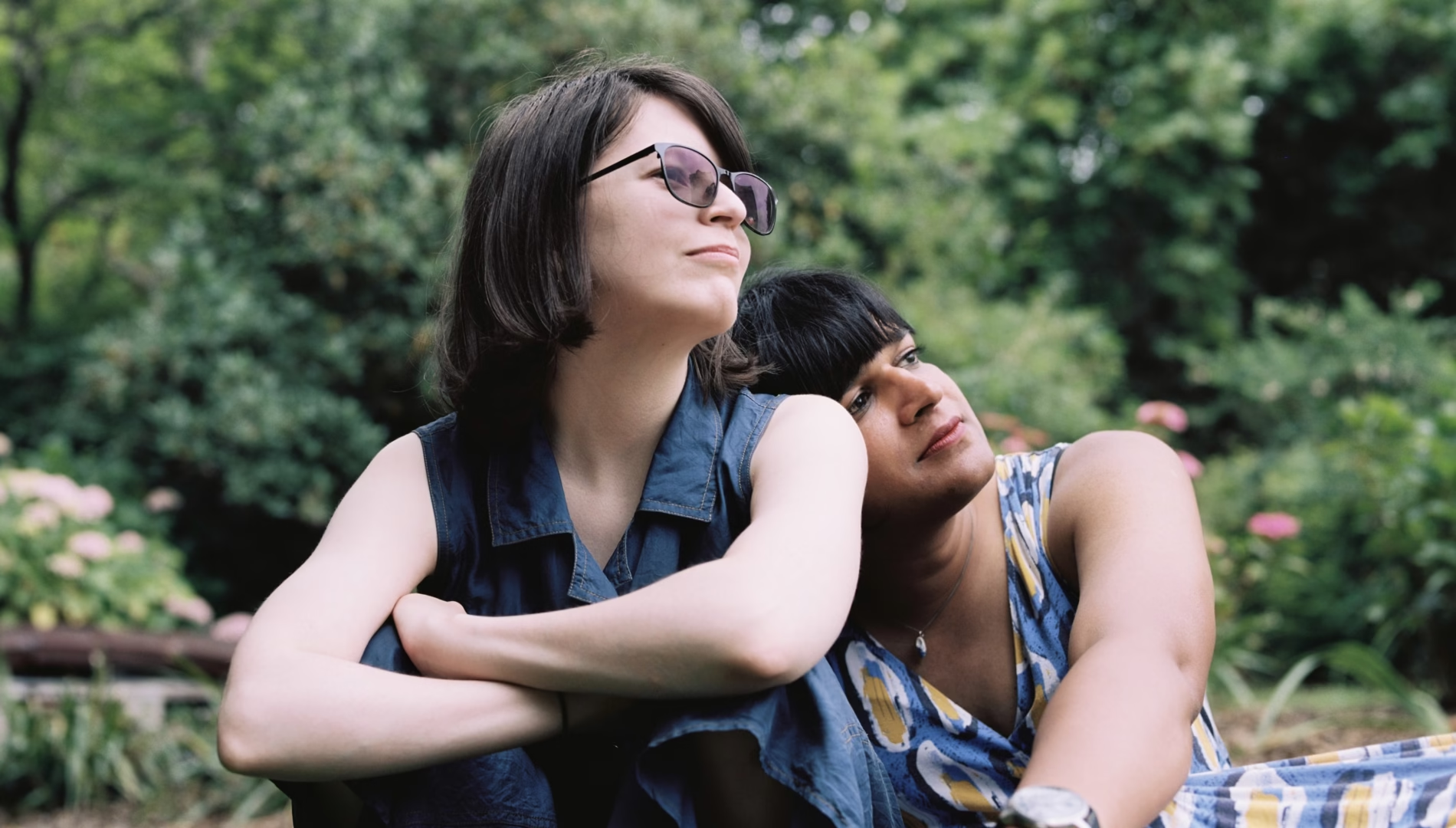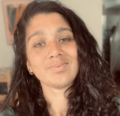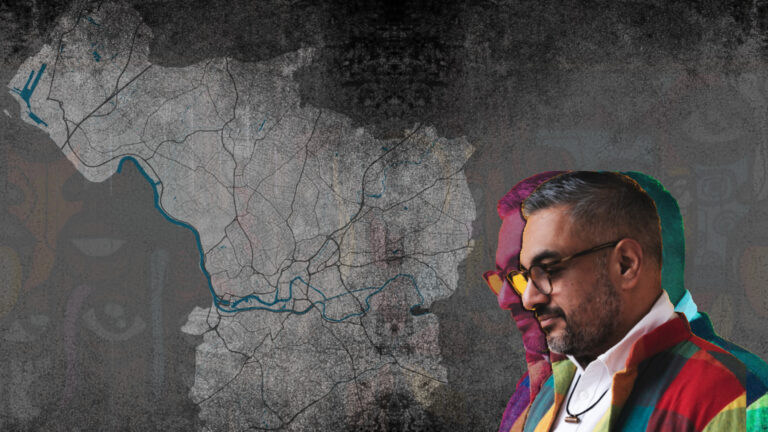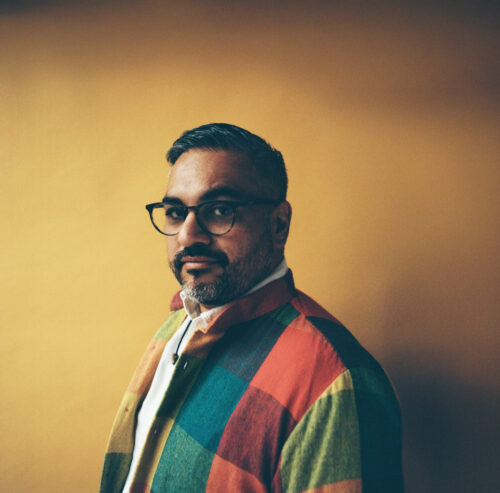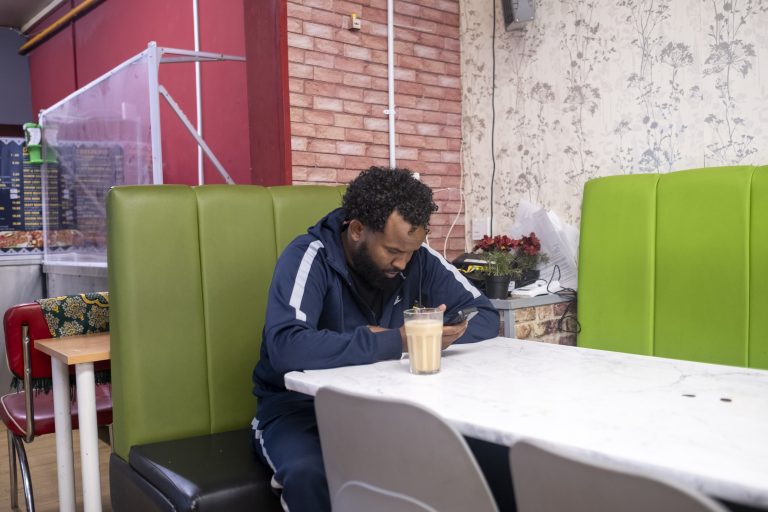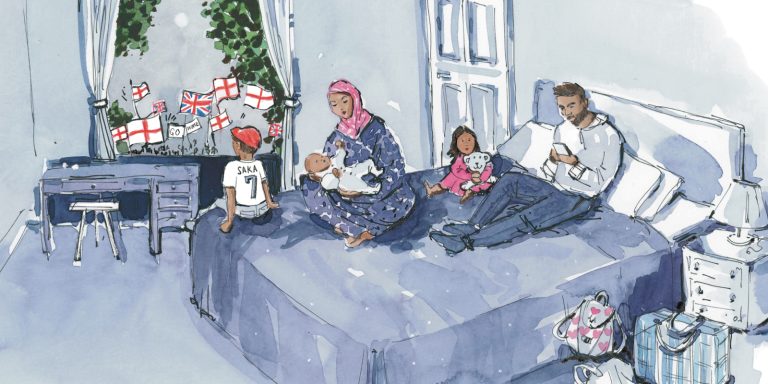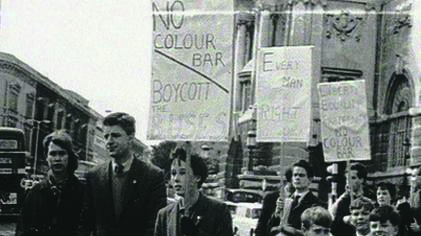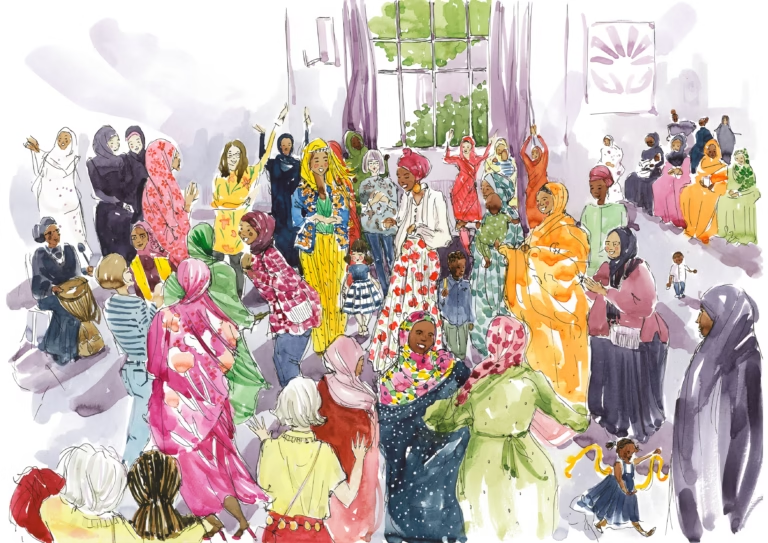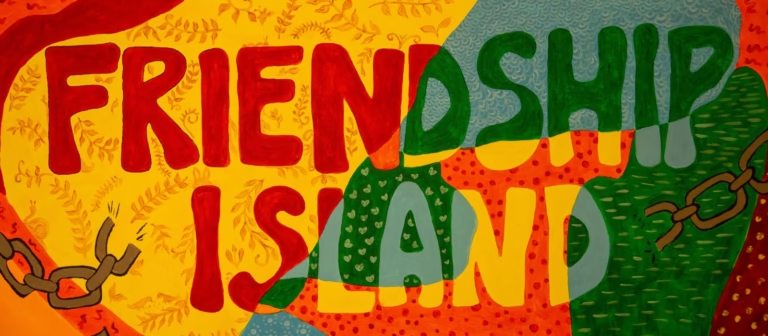Photos: Sarah Currie
Achintya & Jenni
Achintya arrived in Bristol in 2021, carrying a certainty she’d held since childhood.
“I knew I was transgender from about the age of four or five,” she says. “I felt like a method actor most of my life, until I finally decided around two years ago to try being myself. The strong queer culture in Bristol helped me to be brave enough to do it.”
Starting her transition allowed Achintya to finally be herself.
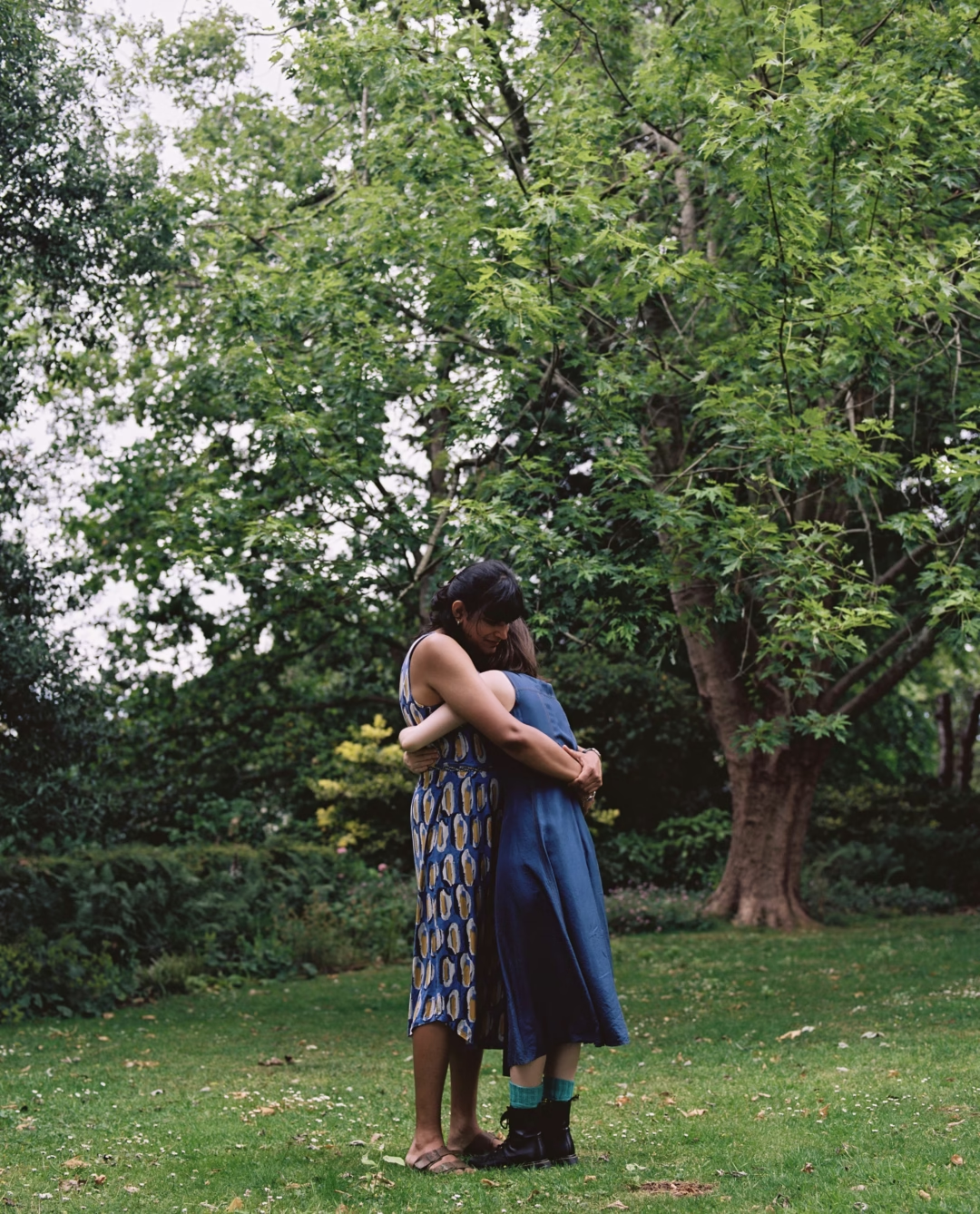
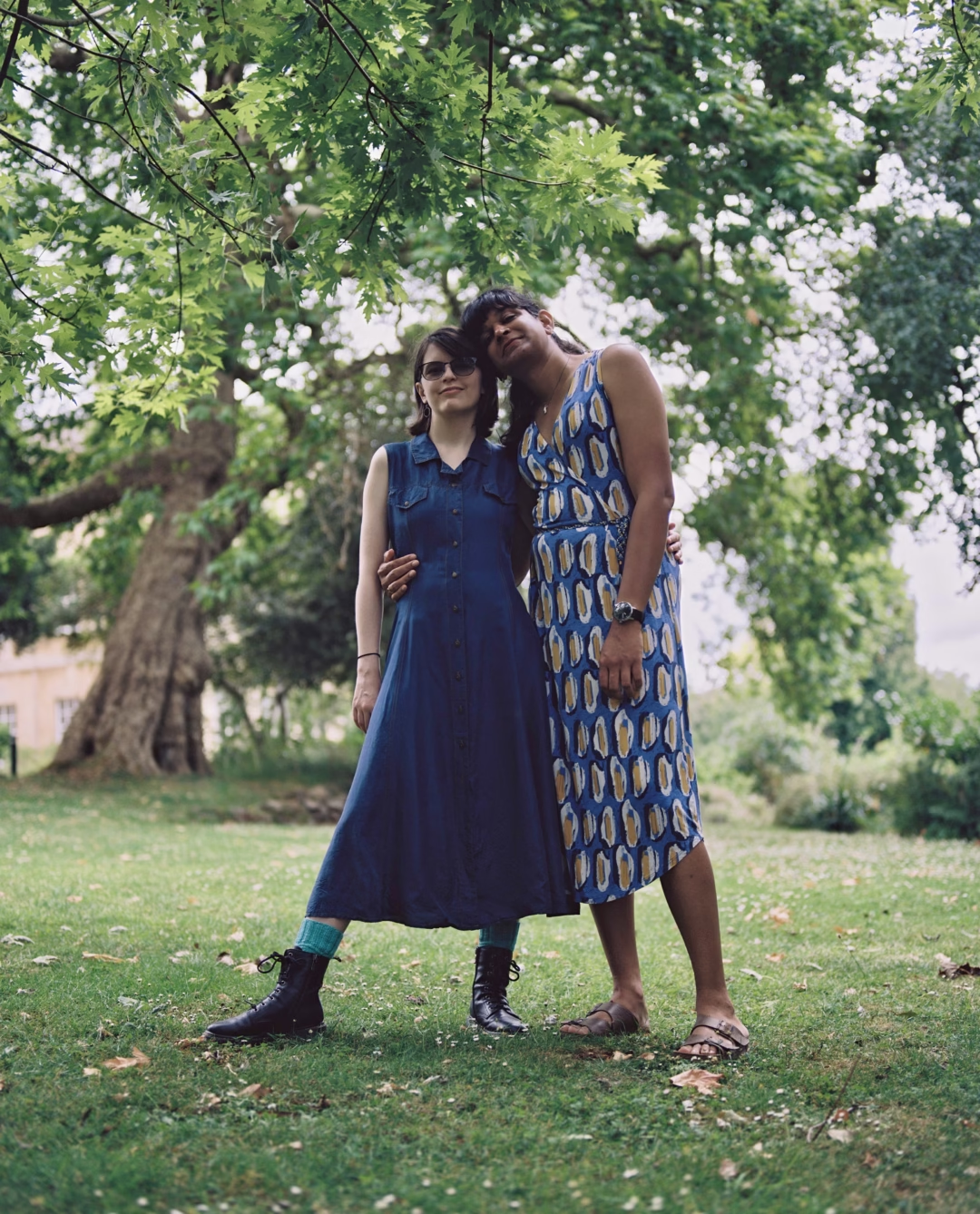
“A few months after taking HRT, the depression that I had been carrying for 25 years just evaporated overnight,” she says. “Transitioning brought me joy that I never experienced before.”
There is light in her story – and love, too.
“I have been fortunate enough to be accepted by my family, choir, friends and work,” she continues.
But more recently, the landscape around her has shifted.
“Recently, I have started to feel less safe given the continued attacks on transgender rights in the UK.”
While UK law, in theory, protects LGBTQ people, trans individuals face rising hostility — in headlines, in the streets, and in policy. A 2025 Supreme Court ruling, which defined the legal category of “woman” as biological sex, has only intensified the sense of fear and erasure.
For Achintya, being both trans and a migrant has led to a sense of precarity.
“Being a migrant is like a golden cage. You cannot choose to have a break if you are burnt out, you just have to keep working until you get indefinite leave to remain. What I dream of is being able to put my bags down, but currently, I feel scared for my future here.”
I felt like a method actor most of my life
Achintya
After a recent visit to India, where she was warmly received by relatives, the idea of moving back to her country of origin crossed her mind. But love, as it often does, complicates everything.
“The thing is, I am in love with someone here in Bristol,” she says.
She met Jenni, her partner, at their local folk choir. They joined just two weeks apart and grew close over post-rehearsal drinks.
“Despite being from very different backgrounds, our world views aligned and we shared a sense of humour.”
Their friendship deepened into love. As things became more serious, Achintya met Jenni’s family who welcomed her with warmth and acceptance.
However, Jenni is chronically ill, and Achintya fears that if they moved to India, she would not be able to access the medical support she needs.
“When I first decided to transition, I thought that it would mean that I would be alone forever. I felt that at least if I could be happy with myself, that would be good enough.”
She pauses, thinking of the life she and Jenni have built together.
“The most beautiful thing was meeting Jenni, who has loved me for who I am. It is a beautiful thing to know that I can be loved as a transgender woman. Every day I acknowledge that to myself, and every day I feel grateful.
Yiran & Jaz
“I had my first queer relationship after moving to Bristol in 2021. I matched with Jaz on a dating app and we organised our first date at Mothers’ Ruin. We got on immediately and had the same interests. We played Scrabble – I won!” Yiran recalls, laughing warmly.
“We had our first kiss by the Harbourside that night. We’ve been together ever since.”
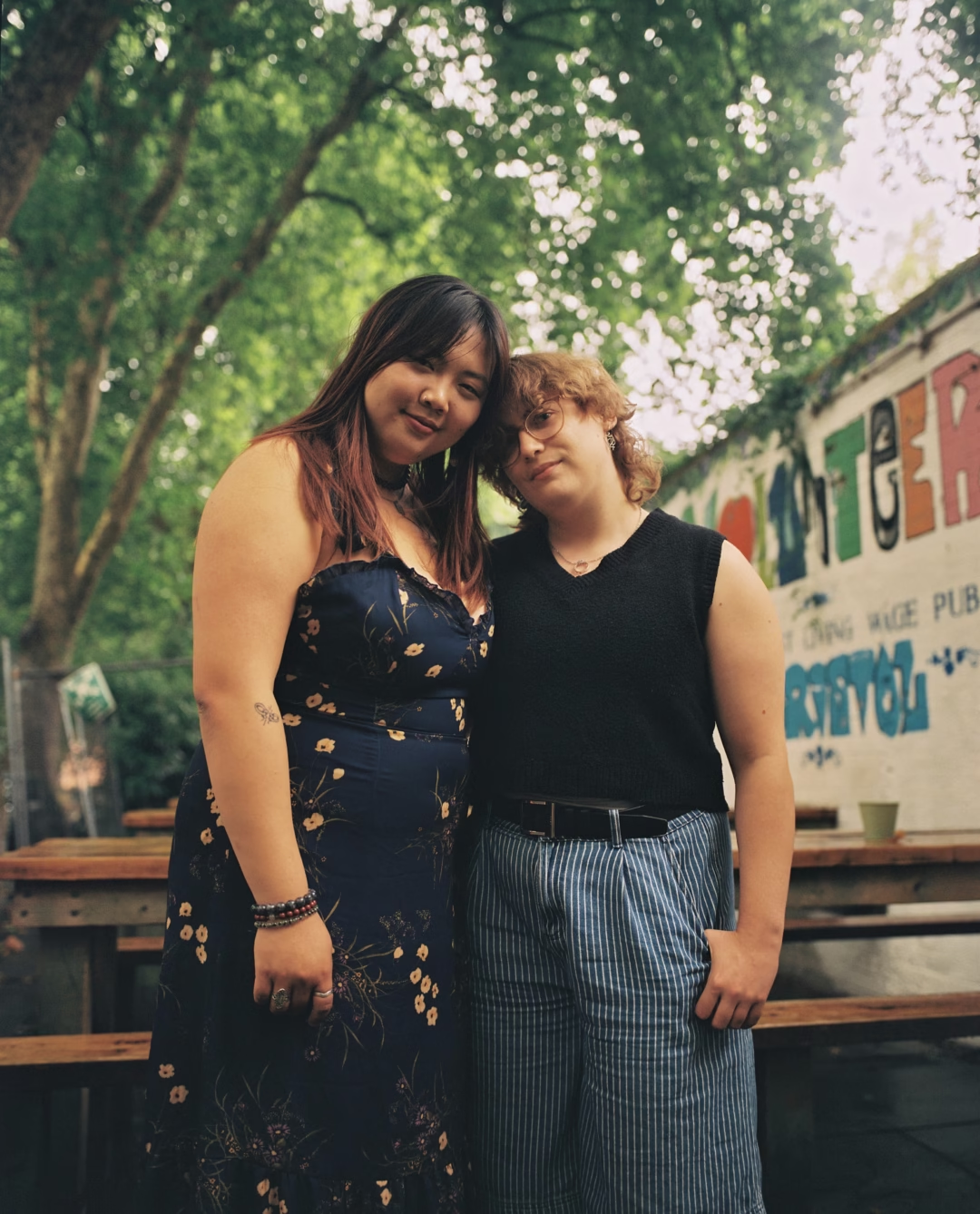
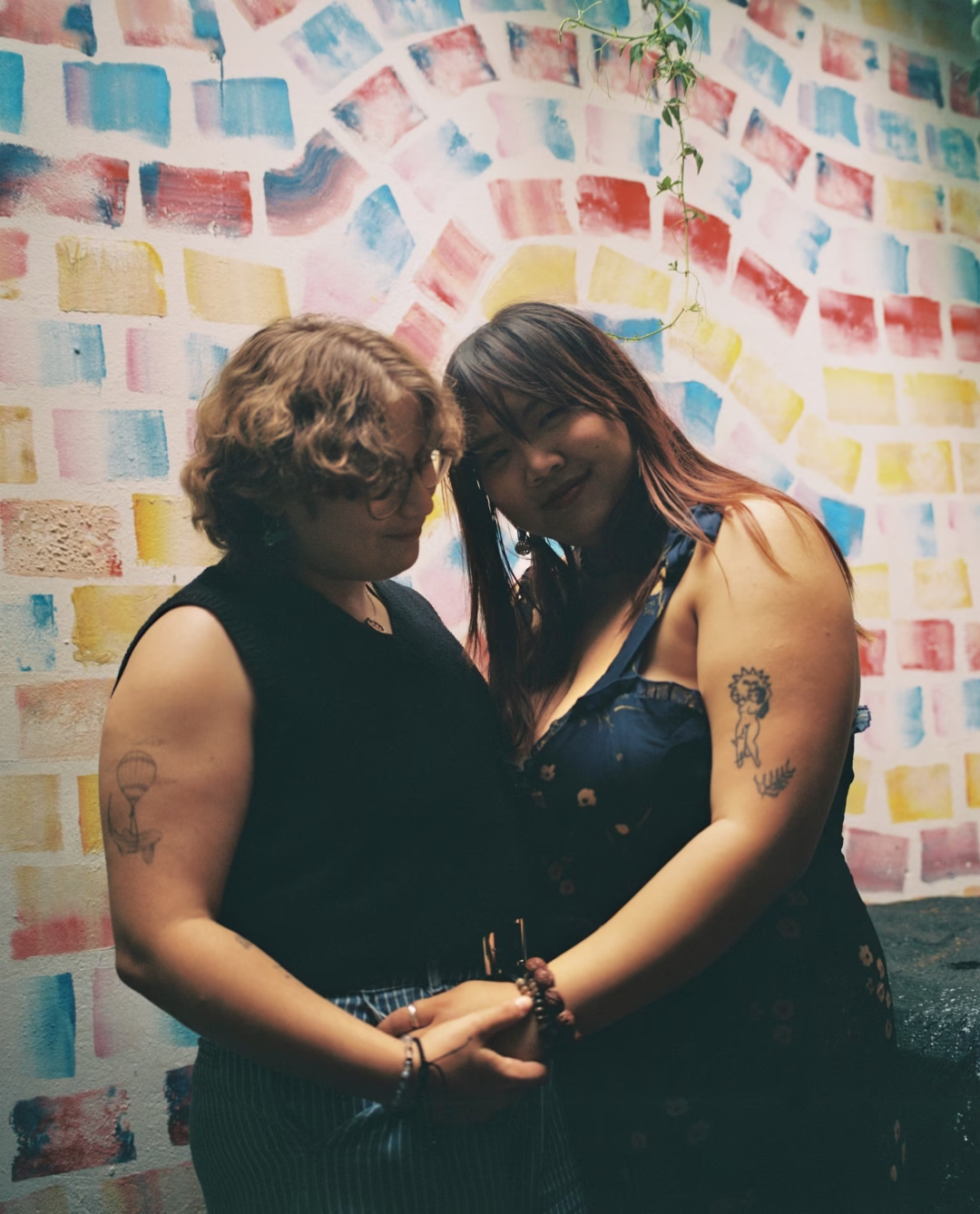
Yiran, 25, moved to Bristol from China in 2021 to study a master’s in International Development. It was here that they fell in love, their first queer relationship.
“I remember the first time I went to Jaz’s house. They had this huge tapestry of the Two of Cups tarot card which is the lovers card for queers,” Yiran says, their voice softening. “It felt like I could finally be myself, and love someone fully.”
In China, expressing queerness came at a cost for Yiran. In 2021, while studying at university in Chongqing, Yiran tried to organise an event for the International Day Against Homophobia. Staff threatened to block their friends from graduating if it went ahead and brought in extra security to stop students wearing rainbow-coloured items from entering.
It felt like I could finally be myself, and love someone fully.
Yiran
“It’s hard to explore and express who you are in that kind of environment,” Yiran says.
After graduating in 2022, Yiran struggled to find an employer that would sponsor their visa in order for them to continue living in the UK. “It was nearly impossible to find any work in my field that would sponsor me,” they explain.
“A lot of British people don’t realise how hard it is, But Jaz was always there, listening and supporting me.”
Eventually, Yiran landed a job at a large finance firm, where failing any exams twice meant instant dismissal. “The working conditions were pretty awful. The anxiety and pressure was making me a different person. It started to affect our relationship.”
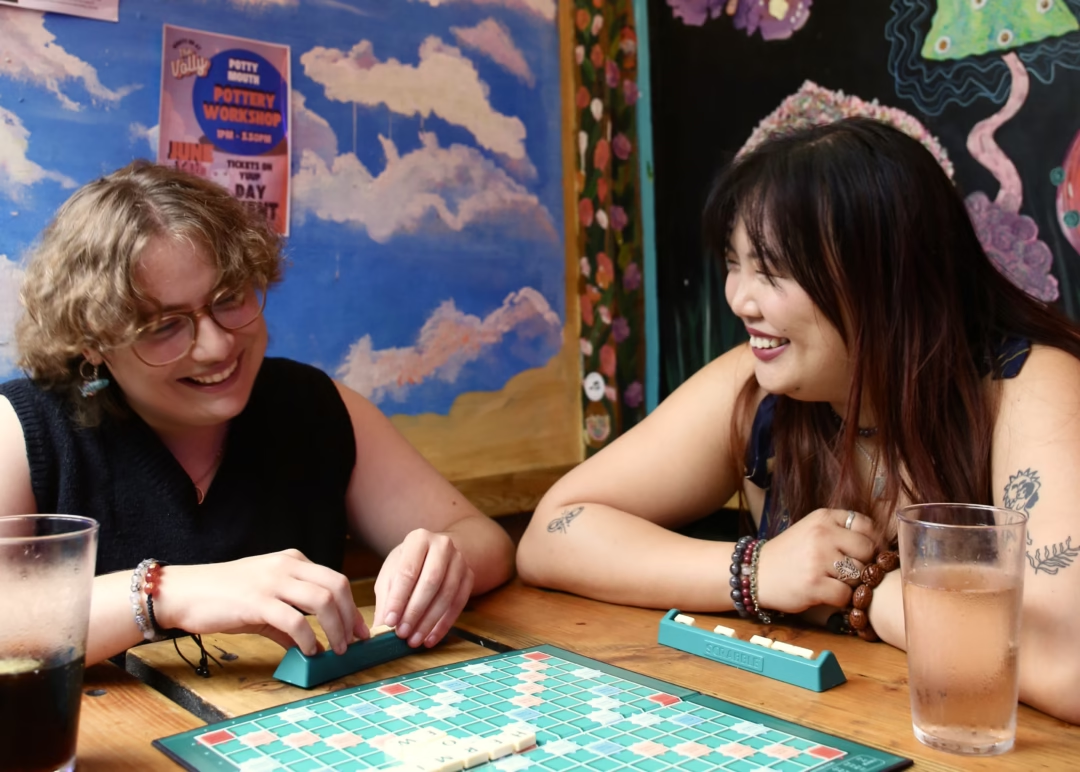
To allow Yiran to leave their job, Yiran and Jaz decided to marry. What was at first a practical step ended up meaning much more. “The ceremony felt really emotional and we both cried a lot.”
Marriage brought not just legal security, but a new chapter to their relationship.
Though they were already living together, “We basically acted like a married couple anyway,” Yiran laughs, the change felt significant.
“I can finally look forward to planning the future with Jaz.”
Minxi
For Minxi, moving to Bristol was a turning point in their life.
“Bristol will always have a special place in my heart. It’s where I found queer love, for myself and other people,” they laugh.
They’re speaking to me from their room in Kuala Lumpur, where they now live.
Minxi came to Bristol in 2021 to begin a master’s in creative writing, joining their then-husband, a British citizen.
“I came to the UK on a student visa with the understanding that when I graduated, my husband would sponsor me.”
But that promise unravelled and became a source of control in the relationship.
“Bristol will always have a special place in my heart. It’s where I found queer love
Minxi
“I stayed with him longer than I should have because of this promise, but in the end, I understood that I had to leave for my own safety.”
Minxi left the marriage in February 2024. With eight months left on their student visa and no sponsorship, they had to return to Malaysia and abandon the community they had formed in the UK.
“I was trying to gather my life back up after the break-up, and I found this amazing queer community in Bristol,” they recall. “I remember going to Soft Butch club night a few times. That was a big moment for me.”
They light up with the memory.
“It was one of the most beautiful times in my life. I came out socially as non-binary. I went around kissing loads of women and met other trans, masc, people of colour, which made me feel less alone.”
In those fleeting months, something profound shifted.
“I think it’s part of the immigrant experience: you’re forced to reinvent yourself, and for me, part of that experience was finding my queerness.”
Now back in Kuala Lumpur, Minxi explains that they feel less safe to fully express their queerness. “I tried to fit in for a long time growing up,” they explain. “I thought I was just depressed, but looking back, I can see it was gender dysphoria.”
Their fear is well-founded. In Malaysia, same-sex relationships are criminalised, and non-binary identities unrecognised. In 2018, two women were publicly caned for ‘attempting to have lesbian sex’.
To see more of Sarah Currie’s photography, you can find her work on Instagram.
Independent. Investigative. Indispensable.
Investigative journalism strengthens democracy – it’s a necessity, not a luxury.
The Cable is Bristol’s independent, investigative newsroom. Owned and steered by more than 2,600 members, we produce award-winning journalism that digs deep into what’s happening in Bristol.
We are on a mission to become sustainable, and to do that we need more members. Will you help us get there?
Join the Cable today